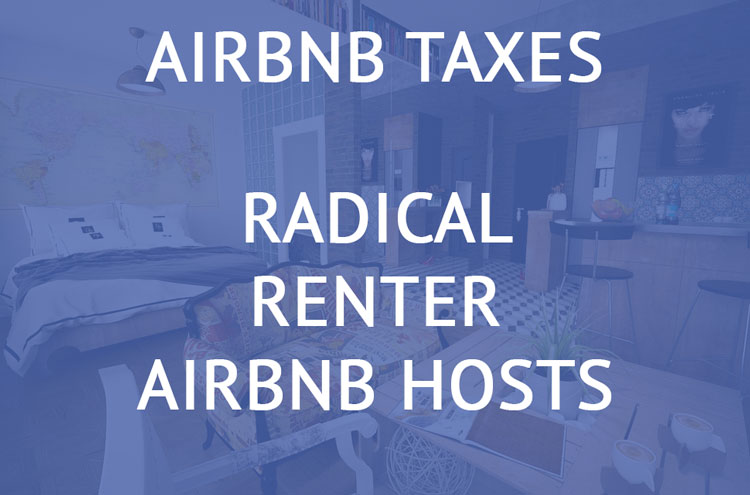
In our previous article about Airbnb Taxes, we discussed seven categories of Airbnb hosts. Below is the first group we will cover in-depth.
The radicals started it all and are still at the heart of Airbnb movement. Before we take a deep dive into tax implications, let’s briefly revisit the 3 types of radicals:
The Space Sharer
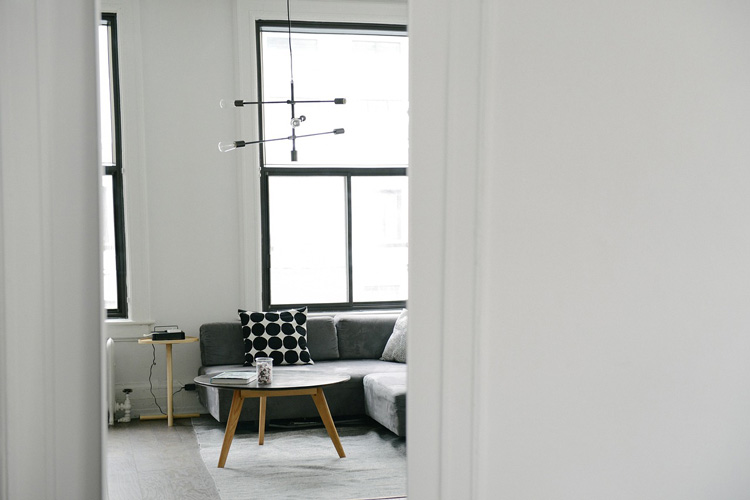
A Space Sharer airbnbs out any available space they can share – couch, bed, etc. They use the space for both personal and business use. The key here is that Space Sharers does not exclusively airbnb-ing out the space to their guest therefore they can only deduct the business portion of their business expenses using an allocation method that we’ll further discuss below.
The Reliable Roommate
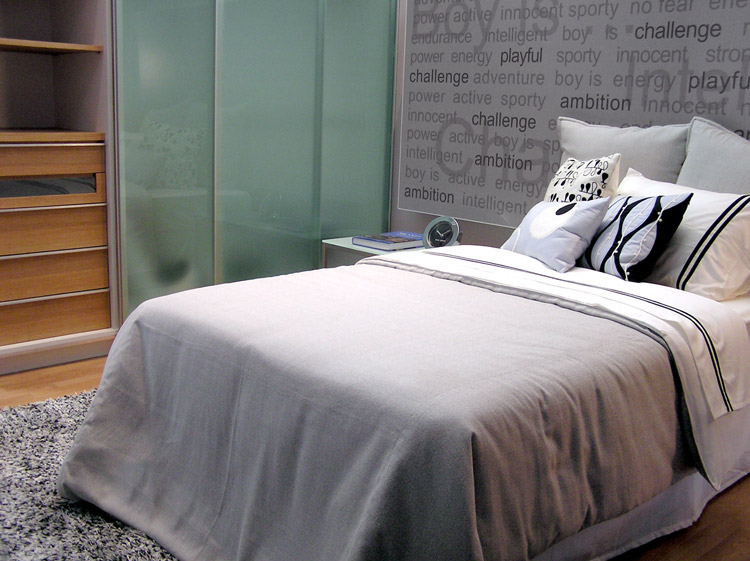
A Reliable Roommate airbnbs out an exclusive room to a single or multiple guests. Generally, they are hosts that have a space that is not being used. They rent out their space whenever they can find someone to book the space. The key here is that throughout the year, they make the space available for rental use and they do not use the space for personal use. As such, the business expenses related to that particular square footage are 100% tax deductible. We’ll discuss below how to allocate by square footage.
The Weekend Warrior
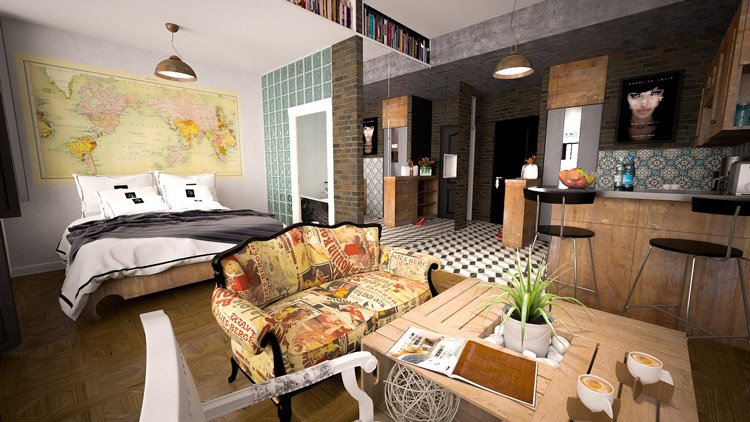
A Weekend Warrior airbnbs out their entire apartment when away on vacation, holidays, travel, or business trips. They use the entire apartment for business use and personal use. The key here is that the host rents out the entire apartment, therefore, the allocation method is different from the Space Sharer and Reliable Roommate.
Airbnb Income
Regardless of what type of a radical you are, you are required to pay taxes. At the end of the year, Airbnb is going to send you a form called 1099-K, which lists your gross income (it does NOT already have Airbnb commission deducted; more info to follow in deductions section below). Another copy of the form 1099-K is also sent to IRS, so IRS will know exactly how much money you have earned from Airbnb. Unfortunately, you have to pay taxes on your Airbnb income!
Business vs Rental (Schedule C vs Schedule E)
By in large, Airbnb hosts report their income on either Schedule C or Schedule E depending on whether they are engaging in a business or rental activity. If your Airbnb-ing represents a business activity, you are filing your tax information on Schedule C. On the other hand, if your Airbnb-ing represents a rental activity, you get to report your taxes on Schedule E.
As a radical you should file your taxes on Schedule C since you are most likely airbnb-ing your space for less than 30 days, and you are providing substantial services like a hotel or bed & breakfast establishment (communicating with guest, checking-in and checking-out guests, preparing breakfast, cleaning the apartment etc.). Also, if on average you are airbnb-ing out your place for 7 days or less on average, you are required to file taxes on Schedule C regardless whether you are providing substantial services or not.
Tax Deductions
What are deductions? Deductions are business expenses you incur while engaging in Airbnb activities that you can use to offset your Airbnb income, which results in lower taxable income and thus lower taxes. In other words, we love deductions! Deductions are great!
Deductions can be either partial meaning that you can only claim part of the deduction or full meaning that you can claim the 100% of the deduction as a business expense for tax purposes.
Now that you know the definition of a deduction, you might be wondering what type of deductions you can claim as a radical. Fear not, we have compiled an extensive list of deductions to make sure you don’t miss any major ones.
Full Deductions
Airbnb Commission – as indicated above, Airbnb lists on your 1099-K form gross income (it does NOT include commission Airbnb charges). You Airbnb commission is deductible. If you go to Account > Transaction History, you can export your transactions in a csv file (excel sheet) and you can sum your host fees which is tax deductible.
Furniture and Improvements to Apartment– when you started Airbnb-ing, you might have had to purchase furniture or make improvements to your apartment to make your guests more comfortable. Or maybe along the way you noticed that buying some furniture or making an apartment improvement would make your listing more appealing. This is usually costly, but it is also one of the larger deductions you get to take. The key here is that you have purchased the furniture or made improvement to your apartment specifically for Airbnb since it makes your listing better.
You also have to determine whether you can deduct the furniture and/or improvement to apartment right away or if you have to capitalize it and then depreciate it over multiple years. Generally, you can deduct right away furniture and improvements that cost up to $500 per item (IRS 2015).
Cleaning Services – if you are sick and tired of doing cleaning yourself, and instead, you have a cleaning service do the cleaning, you can generally deduct in full cleaning for the space that you are airbnb-ing out.
Extra keys to the apartment – you might have to go to a locksmith and make extra copies of keys for your guests. Make sure you keep the receipt because this one is deductible in full.
Hygiene supplies for the guest – shaving cream, disposable razors, toothpaste, toothbrush, toilet paper, paper towels etc. – all of these are deductible in full.
Medical supplies for the guest – in case you keep first aid kit and basic medical supplies that you purchased for your guests, you can deduct them in full.
Mileage – to the extent that you are incurring miles while Airbnb-ing, you can deduct them. Some examples would be going to a store to buy supplies, or picking up your guests from airport. You can deduct 57.5 cents for each mile (2015).
Food for Guests – whether it is breakfast cereal, eggs, or any other type of food you might be providing to your guests, it is fully deductible. Generally business meals and entertainment are deductible up to 50%, but since radicals, just as all other Airbnb hosts, are part of hospitality industry, the case can be easily made that providing food for guests falls under “sale of meals and entertainment” and can thus be fully deducted.
Other items – such as, extra sheets, linens, towels, fragrances (Febreeze noticeables, grade plug ins, scented candles etc.), sleeping eye-mask and earplugs, alarm clock, storage bins, printing of a guest guidebook, or any other item you bought for your guests, you can deduct in full.
Expense and mileage tracking apps –if you bought an expense and mileage tracking app, in addition to getting a high five for being proactive about keeping track of your deductions, you get to deduct the cost of the app in full.
Keep in mind that all the deductions you are entitled to are not worth anything unless you are able to track them and prove that you incurred them, so make sure you keep track of your receipts or use an expense/mileage tracking app!
Partial Deductions
Whenever you use an asset, space, or service for both personal and business use, IRS requires you to come up with an allocation method to determine what portion pertains to business and what portion pertain to personal. IRS doesn’t want taxpayers to claim personal expenses as deductions on tax returns. This results in partial deductions – only a portion that pertain to business is claimed as a deduction. We are going to cover allocation methods in the section below, and here, we are going to cover typical partial deductions.
Rent – this is easily one of your most significant deductions.
Utilities – Electricity/Water/Gas/Sewer/Trash Pick up – and any other type of utility bill you might be getting, you can partially deduct it.
Internet and Entertainment – Cable TV/Netflix/Hulu/Amazon etc. – in case you are using any other entertainment channel for your guests, make sure to partially deduct it.
Cleaning Supplies – Bounty, Windex, Lysol, Bleach, Clorox, Brushes, Vacuums, Carpet Cleaners, Rug Doctor – since you are receiving a partial benefit from these, you must deduct them partially. You could potentially deduct them in full if you can prove that you are using more cleaning supplies than before.
Parking Pass – In case you are paying parking pass, and you are also sharing the parking pass with your guest, you can partially deduct it based on the number of times it was used by the guests.
Passes to Amusement Parks and Tourist Attractions – Amusement parks, such as Universal Studios, Sea World, or Disneyland, are a great way to enhance the experience of your guests. If you have passes to the amusements parks or tourist spots and you share them with your guests, you can partially deduct these based on the number of times it was used by guests. In addition, these are subject to 50% meals and entertainment rule.
For example, if the annual pass is $100, and your guests have used it 100 days out of 365 days in the year, you would calculate your deduction in the following manner:
Deduction = $100 * 50% * 100/365=$13.70
Phone – if you are using your phone to communicate to your guests or manage your listing, you can deduct your phone bill. For example if you are using your phone 20% of the time for Airbnb, then you can deduct 20% of your phone bill. If you have a personal phone then also purchased a 2nd phone solely for Airbnb, then you can deduct both the cost of the 2nd phone and the monthly bill in full.
Regardless of how extensive our list is, each radical has a different experience and is potentially going to incur some other expense that is potentially deductible and not on the list. IRS defines a deductible business expense as an expense that is both ordinary and necessary. An ordinary expense is one that is common and accepted in taxpayer’s trade or business. A necessary expense is one that is helpful and appropriate for taxpayer’s trade or business.
When in doubt, ask yourself the following questions:
- Is this expense that I incurred while Airbnb-ing? Is it a necessary expense?
- If so, is there a personal component to it which would make it partially deductible?
Or you can just ask one of our tax experts at Levee.
Allocation Method
As indicated above, for partial deductions, such as rent, utilities, internet, entertainment, and cleaning supplies, you get to partially deduct them using an allocation method.
The allocation is calculated based on square footage of apartment that is dedicated to airbnb-ing and number of days the apartment is rented out. The general allocation formula is the following:
Tax Deduction = Business Expense X Business Space Percentage X Business Days Percentage
where,
- Business Expense: The amount paid for a business related expense.
- Business Space Percentage: Square Footage for Airbnb Use / Total Square Footage of Apartment
- Business Day Percentage: Number of Days for Airbnb Use / Total Days Use.
The IRS Pub 527 states that if an expense is for both rental use and personal use, such as mortgage interest or heat for the entire house, you must divide the expense between rental use and personal use. You can use any reasonable method for dividing the expense.
Airbnb Tax Case Study
Depending on what type of radical you are, your allocation percentage is going to be different. To illustrate the concept better, we are going to take you through the following example below:
- Rent expense for the year = $10,000
- Total Use= 365 days
- Airbnb Use=65 days
- Square Footage for Airbnb – Space Sharer (sq. ft. dedicated to a personal couch/bed)=50 sq. ft.
- Square Footage for Airbnb – Reliable Roommate (sq. ft. dedicated exclusively to a room)=120 sq. ft.
- Square Footage for Airbnb – Weekend Warrior (sq. ft. designated for Airbnb use)=800 sq. ft.
- Total Square Footage=800 sq ft
Space Sharer’s Deduction = $10,000 X 50/800 X 65/365=$111 (most conservative)
Reliable Roommate’s Deduction = $10,000 X 120/800 X 365/365=$1,500
Weekend Warrior’s Deduction = $10,000 X 800/800 X 65/365=$1,781 (most aggressive)
Keep in mind, that the above methods appear to be reasonable based on the type of hosts you are. The most conservative method is to divide the expense by the square footage of your home and the number of rental days. Meanwhile, the most aggressive method is to divide the expense by the number of rental days throughout the year.
Airbnb Expert Tax Tip: To maximize your deduction, dedicate more space exclusively to airbnb-ing or keep your occupancy rate high.
Have question on any deductions or other tax topics? Contact us at Levee and we will help you figure it out.
Read this tax article to learn more about the Airbnb Tax category you fall in.

✔ How to avoid the BIG mistakes that most hosts make
✔ The secret weapon of all Top 1% Hosts
✔ The pricing strategy used by professionals
✔ How to consistently get gleaming 5-Star reviews
✔ How to free up your time without becoming a "robotic host"
This free training is brought to you by James Svetec an Airbnb Expert who has managed over $1M in bookings & Symon He, the founder of LearnBNB, the #1 Airbnb hosting education blog.
Learn about all of the secrets that professional hosts don't want you to know


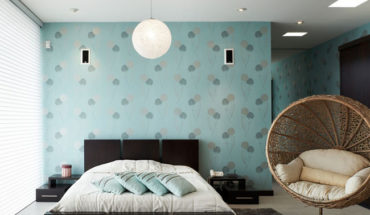

How does the rent deduction work if you own the apartment and pay mortgage?
Alyssa,
You cannot write off your mortgage. You can however depreciate the apartment if you own it and write-off the interest.
You can email Derek Davis at derek@sharedeconomycpa.com for further clarification. He’s the expert at Airbnb taxes.
Thanks,
Jim
I bought a new house and am going to airbnb my guest bedroom immediately. I know that I can write off the bed and things I bought for the guest bedroom. But what about the common areas? For example I bought a couch, a dining table, breakfast bar chairs, and a tv stand.
Hey Anna, Space that is used for both business and personal cannot be written off. For specific tax advice, I suggest you contact a tax professional. Derek Davis of Shared Economy CPA specializes in Airbnb Taxes.
Where is Airbnb Tax Category #2? Does filing a Schedule C result in me getting taxed more? I’m a US citizen living in Canada renting out space in Canada. I know that I have to report my income but since I’m receiving money in Canada and paying Canadian taxes, does that exempt me from paying the Self Employment tax?
I began listing my leased condo on AirBnB. This unit was my primary place of residence. In the last year and a half, I have leased two additional condo units for the sole purpose of listing on AirBnB.
Because of the popularity of the units, I must now rotate between units continuously, throughout the year, for use as my place of residence. At times I might only stay a day before vacating for the next AirBnB renter and other times I may stay a up to a full month. Then are are times where all three condos units are booked for AirBnB hosting and I must rent a room at a local hotel for days to weeks at a time.
Am I considered to be engaging in a business? Does it matter that my original condo began only as my primary place of residence? Is it possible to be considered as engaging in both a business and rental activity or does one activity or number of times of each activity determine overall what type of engagement I am involved which produces income?
And, whether it’s determine I am engaging in one or the other, when it comes to rent, am I correct in that a business may deduct 100% of the rental fee and a rental activity may only deduct a % of the rental fee determined by sq. footage? And is there a maximum square footage allow for deduction purposes?
thanks.
My landlord wants a commission on the air bnb proceeds, we are imagining 50%.
we also pay rent, with the weekend warrior style accounting
can we deduct the commission from our taxes as well as rent?
e.g.
rent X
days Y
airbNb days Z
airbNb rate R$
commission percent C
Z*(X/Y) = rent deduction RD
R$ * Z = gross income G
G*C = total paid to landlord deduction LD
adjusted gross income = G – (RD + LD)
This is 50% of earnings on top of paying rent? That’s sounds a bit steep. Unless you’re in a top performing listing in a really hot Airbnb market, it’s tough to see how there’ll be enough of an incentive for you to host. If 50%, make sure it’s 50% of NET bookings (net of cleaning, fees, refunds, supplies, etc…) and not 50% of gross bookings. Our lawyers tell us we can’t provide tax advice directly so we recommend you talk to your financial or tax advisor.
Hi, thank you for this article. It is very helpful, but I still need clarification on the decision to file a Schedule C or Schedule E. By your definition, I identify as a Reliable Roommate – I always have one room in my 3-bedroom apartment (that I rent) listed on Airbnb. I plan to deduct 1/3 of my total year’s rent as an expense. Is it a business or rental activity? What’s the lowest tax burden?
I am confused by the article where you say choose Schedule C because “you are most likely airbnb-ing your space for less than 30 days, and you are providing substantial services…” The Reliable Roommate is likely renting out for way more than 30 days.
Working on setting up an entire house for Airbnb.
Question:
Mileage deductible? Driving from my home to Airbnb property to clean/ prepare and BACK to my home?
Hi,
I have three units, I rent two, and live in one which I also airbnb a room of. Can I get away with just using schedule e? in 2018, I will rent two rooms, and the entire unit 3.
Thanks!
How should I allocate great room and family room for tax purpose if I rent out several bedrooms in my house?